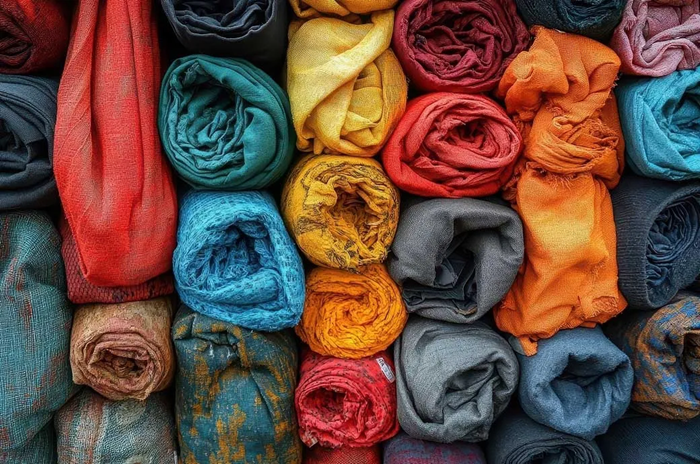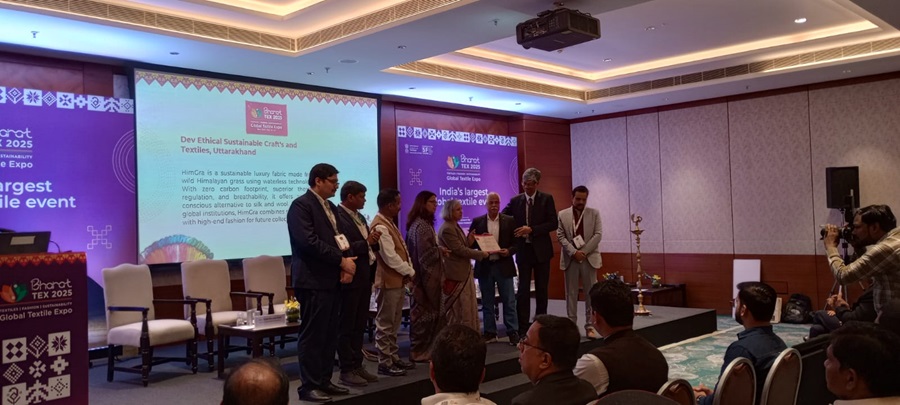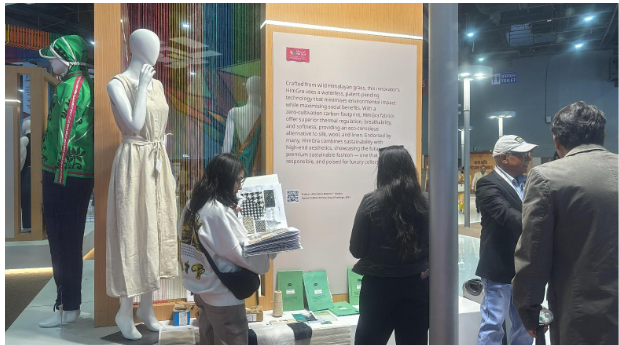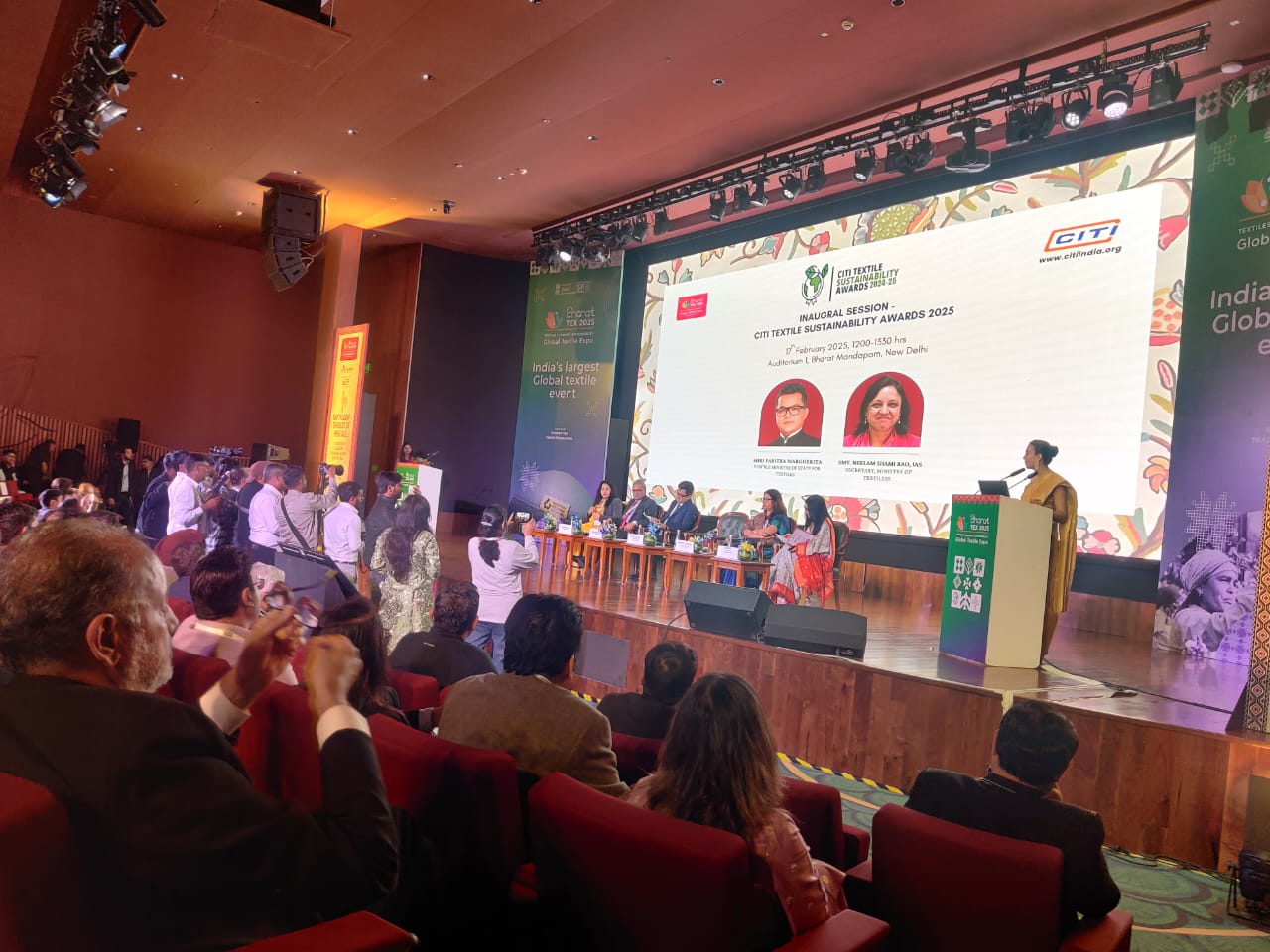FW

The US recent imposition of new trade tariffs on apparel and textile imports, coupled with rising geopolitical tensions, will definitely impact the global sourcing landscape for these goods. These tariffs, intended to boost domestic production and reduce reliance on specific nations, are converging with other powerful forces, creating both challenges and opportunities for manufacturers, retailers, and consumers. As a Kearney report highlights, the Global South is at an "inflection point," and these trade dynamics are accelerating its rise.
The rise of global south
The new tariffs are expected to incentivize US companies to diversify their sourcing strategies, shifting away from countries heavily affected by the tariffs. This aligns with the broader trend of the Global South gaining prominence in the worldwide sourcing landscape. As Kearney's Terry Toland points out, "It is striking, just in the context of apparel and textiles, how many global South countries are front and center," with countries like China, Bangladesh, Vietnam, and India collectively representing a substantial portion of global textile and apparel trade. This shift is not merely a reaction to tariffs but a consequence of long-term economic growth and increasing influence of these "middle powers."
Opportunities in a multipolar world
While the tariffs may create opportunities for some countries, particularly those in the Global South, they also pose challenges. Countries heavily reliant on apparel and textile exports to the US may face economic setbacks. Moreover, the tariffs could lead to increased costs for US businesses, potentially resulting in higher prices for consumers. This occurs within a complex geopolitical context, where, as the Kearney report notes, "geopolitics is back." The rise of the BRICS alliance, increased South-South trade, and growing middle classes in developing economies are all contributing to a multipolar world, where trade relationships are increasingly influenced by factors beyond pure economics.
The following table, informed by US Department of Commerce data and the insights from the Kearney report, illustrates the potential impact of the tariffs on US apparel and textile imports from various regions.
Table: Tariffs impact on US textile and apparel trade
|
Region |
Current import value ($ bn) |
Potential tariff impact |
Change drivers |
|
China |
40 |
Significant decrease |
Tariffs, Diversification, Geopolitical tensions |
|
Vietnam |
15 |
Potential increase |
Favorable trade terms, Shifting sourcing, BRICS membership |
|
Bangladesh |
10 |
Potential increase |
Cost-competitiveness, Established manufacturing base |
|
India |
8 |
Potential increase |
Growing economy, Skilled workforce, South-South trade |
|
Mexico |
5 |
Potential decrease/nearshoring benefit |
Tariffs, Nearshoring advantage for US market |
|
Africa |
Growing Potential |
Potential increase |
Untapped potential, Developing economies, Investor interest |
As the table indicates, US-based clothing retailers sourcing heavily from China are actively exploring alternative suppliers in Vietnam and potentially Africa to mitigate tariff impacts and diversify its supply chain. On the other hand, Indian textile manufacturer sees the tariffs as an opportunity to expand its US exports, capitalizing on increased competitiveness. They are also exploring partnerships with US-based brands seeking to diversify away from China. Meanwhile, Mexican apparel manufacturers are navigating the complex landscape. While facing a universal tariff, they are leveraging their nearshoring advantage for the US market, potentially offsetting some tariff disadvantages.
Experts say, the new tariffs, in conjunction with the broader shift towards the Global South, are fundamentally reshaping the apparel and textile sourcing landscape. Therefore, companies must proactively adapt their strategies to navigate this dynamic environment. Furthermore, the resurgence of tariffs, as highlighted by Kearney, is not a short-term phenomenon but a reflection of the current geopolitical climate. Businesses should expect continued volatility and incorporate this into their long-term planning.
The long-term effects of the new trade tariffs, combined with the rise of the Global South and increasing geopolitical complexities, on the US apparel and textile sourcing landscape remain to be fully seen. However, it is clear that these converging forces will have a significant and lasting impact on the industry. Businesses must be prepared to adapt to the changing dynamics of global trade, embracing diversification, agility, and a deep understanding of the evolving geopolitical landscape.
A new report by Technavio predicts, fueled by the increasing purchasing power of Gen Z and Gen Alpha consumers, the global fast fashion market will expand at a CAGR of 11 per cent adding $79.2 billion between 2024 and 2029.
North America is likely to be the key growth driver of this market during the period, with women leading purchases. Instagram and other social media platforms will continue to fuel sales for brands like H&M, Boohoo, Forever 21, Primark, Victoria's Secret, and Gap. However, sustainability concerns and potential tariff impacts pose significant challenges.
Despite the optimistic outlook, obstacles like growing awareness of overconsumption and fast fashion's environmental footprint will continue to deter buyers, says the report. The industry's growing landfill waste and water usage, coupled with ethical concerns regarding labor practices, will be under scrutiny, it adds.
Another challenge facing the industry includes tariffs, especially those previously imposed on Chinese imports. While some tariffs are delayed, existing ones, along with the possible elimination of the de minimis exception allowing duty-free entry for goods under $800 threaten many brands. This exception has benefited companies like Shein and Temu. Temu's response has been to establish US logistics partnerships for domestic shipping, a strategy Shein hasn't fully replicated.
According to Technavio, brands can navigate these challenges by adopting personalization, contactless technologies, and exclusive labels, says the report. They can meet customers evolving needs by balancing affordability, sustainability, and consumer preferences, it adds.

Source Fashion, Europe's premier responsible sourcing show, opened today, 18th February, at Olympia London, drawing a record-breaking number of visitors. Buyers, retailers, and sourcing professionals from global brands like Next, John Lewis, Asos, Harrods, and Barbour attended, seeking sustainable sourcing solutions and new partnerships.
The event features manufacturers from key sourcing regions, including the UK, Portugal, Egypt, India, Indonesia, and Nepal. Nicola Kirby, Head of Sourcing at John Lewis, highlighted the importance of the event in connecting with suppliers, particularly for childrenswear and tailoring expertise.
Niren Shah, Owner of Desert Crafts, noted strong engagement with UK and global retailers, emphasizing his focus on English-speaking markets. He confirmed his company’s continued participation in both the February and July editions.
The Source Catwalk Show, held three times daily, showcased key fashion trends Reconstructed, Circus, and Romance along with a sustainable swimwear collection by stylist Rebekah Roy. Designer Stuart Trevor, founder of All Saints, closed the show with his new sustainable label, Stuart Trevor, featuring repurposed materials.
Industry discussions on the Source Catwalk and Source Debates Stages tackled sustainability challenges. Nick Reed, founder of Neem London, led a panel on shifting from fast fashion to circularity, with experts emphasizing slow, local manufacturing, durability, and transparency. Jackie Andrews-Udall of Johnstons of Elgin praised wool and silk for their recyclability, while Sarah Jordan of Y O U. Underwear addressed consumer resistance to non-synthetic fabrics.
Another key debate focused on sourcing shifts from Asia to North Africa. Giovanni Beatrice of Forward in Fashion pointed to rising costs in Turkey, positioning Egypt as a leading alternative due to lower wages, duty-free EU access, and reduced environmental impact. Sherin Hosni of Egypt’s Apparel Export Council highlighted Egypt’s efficiency and sustainability in high-quality apparel production.
The Egyptian Pavilion, with 20 exhibitors, showcased the country’s craftsmanship and sustainability. Omar Abdelfattah of El Helal Company emphasized Egypt’s competitive pricing and short lead times compared to Asia, strengthening its appeal to UK and European buyers.
Event Director Suzanne Ellingham celebrated the record attendance and the show's success in fostering responsible sourcing. She praised the open discussions on sustainability and industry challenges, emphasizing Source Fashion’s role in shaping the future of ethical sourcing.
With two days remaining, the event continues to drive impactful conversations and new business opportunities in sustainable fashion.
To address the sharp rise in yarn imports impacting the domestic textile industry, All Pakistan Textile Mills Association (APTMA) has urged the government to either restore zero-rating of local supplies under the Export Facilitation Scheme (EFS) or implement a uniform sales tax regime for imported yarn.
Highlighting the disparity in the current system, APTMA says, local suppliers face an 18 per cent sales tax on exports, while imported yarn is exempt. This imbalance has led to the shutdown of nearly 40 per cent of spinning units, while the remaining operate below 50 per cent capacity. This not only leads to loss of significant number of jobs but also millions of dollars due to increased imports. It also puts investments worth billions of dollars at risk, the association adds.
In January 2025, Pakistan imported a record 32 million kg of yarn. This was a result of an unfair sales tax structure favoring imports over locally produced yarn. Yarn imports by the country are likely to triple to 289,42 million kg in FY25 as against 107.64 million kg in FY24.
According to APTMA, the decline of the spinning sector also hinders domestic value addition in exports by Pakistan, negatively impacting the entire textile industry. Furthermore, the reduced demand for Pakistani cotton due to the import surge creates a crisis for cotton farmers, it adds.
To counter this, the government needs to introduce fair policies to maintain employment, improve balance of payments and reduce dependence on foreign loans, emphasizes APTMA.
YKK Corporation has earned the highest ‘A List’ rating for the second consecutive year in the 2024 Climate Change survey by the global environmental nonprofit CDP. This recognition highlights the company's proactive approach to climate action and transparent information disclosure.
In line with its Sustainability Vision 2050, YKK is committed to achieving climate neutrality by 2050. The company aims to reduce its greenhouse gas emissions, Scope 1, 2, and 3 by 90 per cent from 2018 levels, aligning with the net-zero targets set by the Science Based Targets initiative. YKK continues to work closely with customers and communities to reduce emissions across the entire supply chain, reinforcing its dedication to a sustainable future.
Vice President Minoru Maeda emphasized the company’s commitment to the Cycle Of Goodness philosophy, which stresses mutual benefit and societal prosperity. The company's climate initiatives, including energy conservation and the use of renewable energy, are essential to reaching its net-zero goals.
YKK's efforts are guided by its founder Tadao Yoshida’s principles, which emphasize environmental sustainability and respect for people. These values continue to influence the company's operations, aligning with the Sustainable Development Goals and promoting both business and social responsibility.
YKK’s ongoing transparency and progress toward its ambitious sustainability goals further solidify its role in driving environmental responsibility within the global market.

HimGra, a sustainable textile innovator from India, has achieved a major milestone at Bharat Tex 2025 by winning the Textile Startup Grand Challenge Award from the Ministry of Textiles, Government of India. The award highlights HimGra’s dedication to sustainability, innovation, and its socio-economic impact on the textile industry.
During the event at the Sustainability Pavilion (Hall No. 3), HimGra made several key announcements, showcasing its global expansion and new product offerings. The company is now entering international markets through strategic partnerships with leading brands such as Novica in the USA, Scoltex in Europe, and Malwan in Russia and Dubai. These partnerships mark HimGra’s push into key regions for sustainable fashion.
One of the highlights was the exclusive unveiling of the HimGra Women’s Wear Trend Book for AW26/27 by Cinzia, CEO of Ital Tex Srl. This new collection sets a high standard for sustainable luxury fashion, featuring HimGra’s unique ability to merge luxury with responsible sourcing.

HimGra also announced collaborations with renowned fashion institutions, including the North Columbia Institute of Fashion (USA), Kairo Fashion Academy (Egypt), and the Osaka School of Design (Japan). These partnerships aim to drive innovation and research, promoting the use of HimGra textiles in global fashion education.
In addition, HimGra introduced several new fabric innovations, including Jinal HimGra Denim, HimGra Linen, HimGra Marino, and HimGra Tusser. These fabrics are designed to meet the growing demand for sustainable and eco-conscious textile alternatives in both apparel and home textiles.
To ensure product quality and authenticity, HimGra has partnered with Testtex to establish HimGra Identification Standards, offering buyers a certified level of excellence.
The recognition from the Ministry of Textiles at Bharat Tex 2025 solidifies HimGra’s leadership in sustainable fashion. As the global demand for carbon-neutral and ethical materials rises, HimGra is poised to play a pivotal role in the industry’s transformation.
Hyve Group has announced the co-location of Autumn Fair and Glee at NEC Birmingham in September 2026, creating a powerful trade platform for the home, gift, and garden sectors. Autumn Fair will run from 6th-9th September, while Glee will take place 8th-10th September.
This strategic move, driven by industry feedback and research, aims to streamline the buying calendar, enhance exhibitor ROI, and expand opportunities for retailers. By aligning the UK’s leading home, gift, and fashion trade show with the top garden retail event, the co-location will unlock cross-sector buying synergies, access to wider networks, and improved efficiencies.
Exhibitors will benefit from broader exposure to high-quality buyers across multiple retail sectors, while attendees will enjoy an expanded range of suppliers, trends, and innovations. The combined event fosters new business partnerships, enhances sourcing efficiency, and strengthens innovation, driving growth across industries.
Both shows will retain their unique identity while offering a more comprehensive retail experience. Autumn Fair will continue its four-day format, while Glee remains a dedicated three-day showcase for the garden, leisure, and pet industries.
Jackson Szabo, Retail Portfolio Director at Hyve Group, stated: “This alignment reinforces our commitment to driving growth in the UK retail and garden sectors. We look forward to delivering an even more dynamic and commercially rewarding event in 2026.”
The co-location of Autumn Fair and Glee marks a transformative step for the industry, creating a future-proofed platform that maximizes value for exhibitors, buyers, and the wider retail community.

The recent Bharat Tex 2025 (Feb 12-17) concluded with a resounding call for sustainability in the Indian textile industry. The Sustainability Fashion Awards by CITI, held during the closing ceremony, served as a powerful platform to acknowledge those leading the charge towards ethical and environmentally conscious practices. The awards, themed "Innovation Meets Responsibility," underscored the industry's growing commitment to a greener future.
Yogesh Kansal, Additional Secretary, Ministry of Textiles, emphasized the event's alignment with the Prime Minister's vision for the industry. "This year's theme, 'Innovation Meets Responsibility,' resonates deeply with the industry's commitment to both progress and ethical practices," Kansal stated, stressing the importance of respecting India's rich heritage and connection to nature. "Recognizing leaders in sustainability will inspire others to embrace the challenges and opportunities this paradigm shift presents."
Kansal acknowledged the challenges faced by MSMEs, but also highlighted the immense opportunities that sustainability unlocks. He envisioned India as a global leader in sustainable textile production, leveraging its strengths across the value chain. "India is poised to recognize its potential as a leading manufacturer that balances scale with sustainability, diversity, and responsible practices," he declared.
Rakesh Mehra, Chairman, CITI, echoed this sentiment. "We are looking at sustainability as something which is very important in the days to come," he affirmed, emphasizing the importance of circularity, sustainability, and traceability. Mehra also acknowledged the contributions of industry veterans, stating, "Today, we are going to reward our seniors who have been with us for a long time. They have led the path and made it good enough for all of us to be here today."
Pabitra Margherita, Minister of State for Textiles, reiterated the Prime Minister's target to triple the size of the textile industry by 2030. "You are the stakeholders," she said. "We are on this journey to make our textile industry of India, come to India." Margherita highlighted the importance of responsible practices. "Consumers, governments, and businesses are looking for responsible and ethical practices. And we must not only meet this expectation, but lead this transformation." She emphasized that circularity and sustainability are integral to Indian culture. "Circularity is sustainability is an integral part of our Indian culture and heritage that we have been practicing for centuries," she declared.
Prajakta Verma, Joint Secretary, Ministry of Textiles, discussed the growing recognition of sustainability within the sector. "Sustainability is now getting universally recognized in the industry," she observed. Verma highlighted the evolution of the Sustainability Pavilion at Bharat Tex, expanding its focus beyond waste and recycling to include natural dyes and other innovations. She emphasized the importance of collaboration in driving innovation. "Sustainability and circularity will require constant thinking, rethinking, and constant innovation, which cannot happen without collaboration," she stated.
Mukesh Gulati, Ex VP-FMC, discussed the importance of recognizing industry associations for their work in promoting sustainability. "This is the first time that we have partnered with a sector specific organization called CITI to make sure that those who have done tremendously good work in this area are recognized for their work," Gulati said. He acknowledged the textile industry's significant contribution to carbon emissions and the corresponding responsibility to address the issue. "Our responsibility is certainly far more than the other sectors that are there," he emphasized.
The Sustainability Fashion Awards by CITI at Bharat Tex 2025 served as both a celebration of achievements and a call to action. The event underscored the Indian textile industry's commitment to a sustainable future and highlighted India's potential to become a global leader in responsible textile production. It reinforced the crucial message that innovation and responsibility must be intertwined as the industry forges its path towards future growth.

India's textile industry holds immense potential, but needs to accelerate its development to compete with the likes of China, according to Eric Dorchies, CEO of Ciel Textile. In an exclusive interview with FashionatingWorld I DFU on the sidelines of Bharat Tex 2025, Dorchies emphasized the need for quicker execution and a focus on man-made fibers to capitalize on emerging market trends.
Dorchies acknowledged the significant opportunities present in the Indian market, but cautioned that the current pace of growth is too slow. "We see a lot of potential," he stated, "but…we need to move fast." He pointed to the rapid advancements in neighboring countries, fueled by substantial investments, as a key challenge to India's competitive edge.
A major concern highlighted by Dorchies is the time-consuming process of establishing operations in India. He cited challenges ranging from acquiring land and constructing factories to managing absenteeism and attrition, which can impact both quality and timely delivery. "We have a lot of work to do in terms of educating our people, in all respects," Dorchies asserted, emphasizing the need to achieve the same level of operational efficiency seen in regions like China.
Furthermore, Dorchies addressed the shifting market dynamics, particularly the increasing demand for man-made fibers like polyester. He noted that while India is currently not a major player in this segment, government initiatives like the Production Linked Incentive (PLI) scheme offer crucial support and promise to unlock significant opportunities. "As and when it will materialize, just like it has happened in the woven cotton space, there will be a lot more opportunities for India to become a much bigger player," he explained.
Despite these challenges, Dorchies remains optimistic about the future of the Indian textile industry. He reiterated his belief in the country's long-term potential, but stressed the urgency for faster action. "I have felt very strongly about India for many years," he concluded, "There's great opportunities, but we need to run faster. And so, that's the competition." His remarks serve as a call to action for the Indian textile sector to streamline its processes, invest in workforce development, and adapt to evolving market demands to secure its position in the global textile landscape.

India is on the cusp of a major breakthrough in the global textile industry, according to Robert Antoshak of Gherzi Textile Organization. Speaking exclusively to FashionatingWorld I DFU on the sidelines of Bharat Tex 2025, Antoshak (also known as Bob), a veteran observer of the Indian textile scene, expressed a bullish outlook on the country's potential. "Now is the time for India to really step up," he declared, emphasizing the convergence of favorable geopolitical winds and the industry's growing capabilities.
Antoshak highlighted India's strength in cotton production but stressed the importance of expanding its synthetic fiber base. He believes this diversification is crucial for producing the broader range of textile products needed to compete globally, particularly in performance fabrics. "India is second to none with cotton, that's not the issue. It's more in the synthetics, more in working with the performance fabrics," he explained. He noted a positive trend at Bharat Tex, suggesting increased focus on this area.
The changing geopolitical landscape, with India positioned favorably, presents a unique opportunity, Antoshak emphasized. "The geopolitics favor India at this point," he stated, adding that this creates a window for development. He urged the industry to "meet the opportunity" by investing, collaborating with international partners, and developing robust new supply chains.
Antoshak was highly impressed with Bharat Tex 2025, praising its comprehensive coverage of critical industry issues, from technology and sustainability to manufacturing improvements and design. "This show is frankly amongst the best in the world right now," he asserted, predicting it will become a leading global textile event. He commended the range of topics, speakers, and exhibitors, highlighting the show's value for the entire supply chain.
Offering advice to the Indian textile trade, Antoshak reiterated the urgency of the moment. He urged companies to maximize their attractiveness to overseas buyers and partners, exploring new and creative approaches. "Now's the time to do it," he repeated.
He also acknowledged the significant contribution of Prime Minister Modi in consolidating the industry's efforts through a major annual event like Bharat Tex. "He has benefited the industry with regard to focusing it for one, you know, one big show every year where people can actually see the full range of what India is capable of," Antoshak said. He believes this unified platform is a significant boost to the industry.












